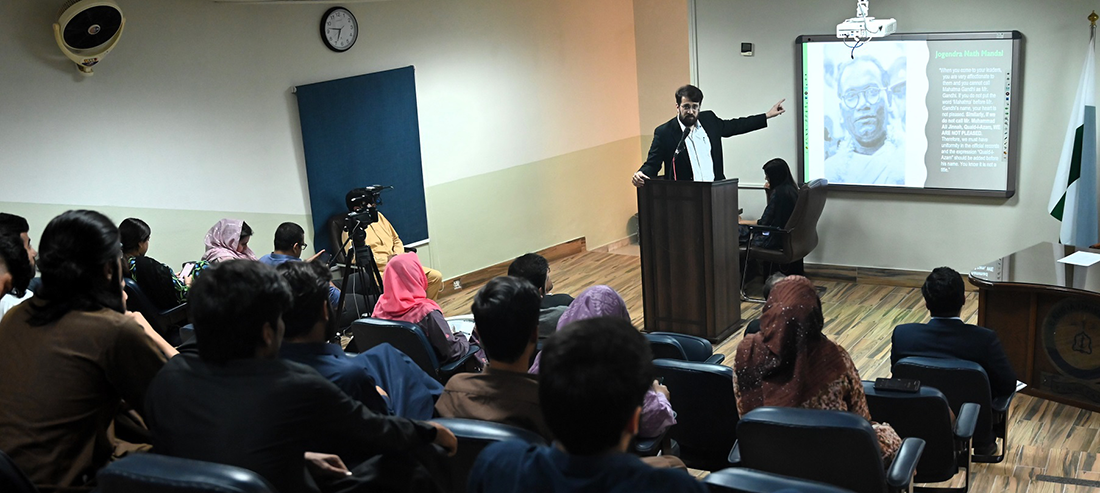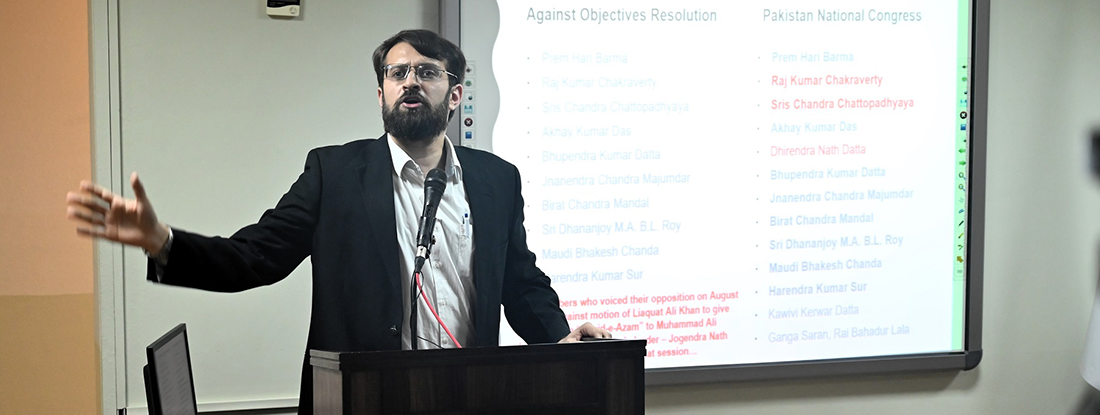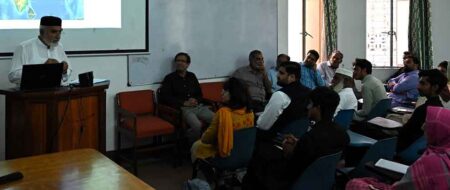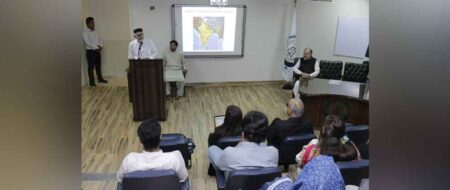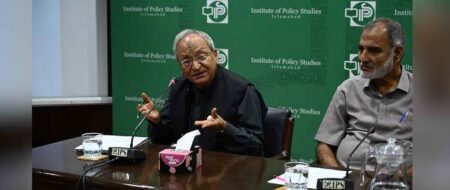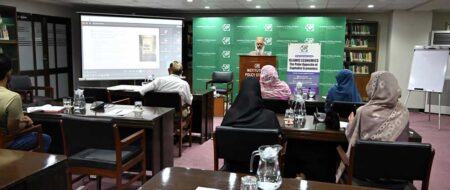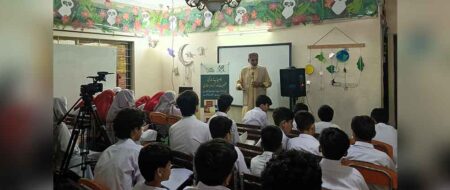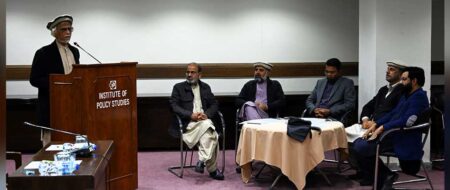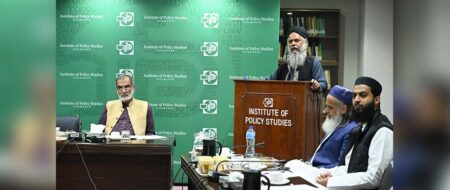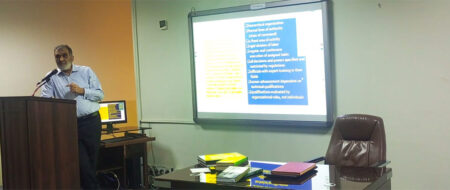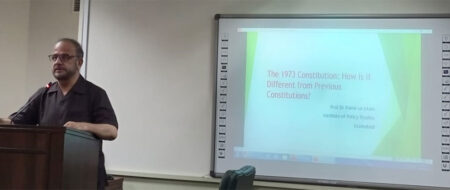‘75 Years of Objectives Resolution: Impact and Significance’
Renewed efforts urged to uphold Objectives Resolution as Pakistan’s identity
Renewing efforts to understand and uphold the Objectives Resolution as the cornerstone of Pakistan’s identity must be seen as a collective duty, given its profound capacity to foster national cohesion and solidarity.
In current times, where unity and harmony are paramount, the Objectives Resolution reminds citizens of their shared values and collective responsibility towards building a prosperous and inclusive society. By reinvigorating efforts to understand and honor its essence, it is particularly the responsibility of Pakistani youth to strengthen the national social fabric and reaffirm the nation’s commitment to the principles of democracy, freedom, and equality enshrined within its constitutional framework.
This was the conclusion of a lecture titled ‘75 Years of Objectives Resolution: Impact and Significance’, organized by IPS in collaboration with the Department of Humanities and Social Sciences (HSS), Bahria University Islamabad Campus on April 23, 2024.
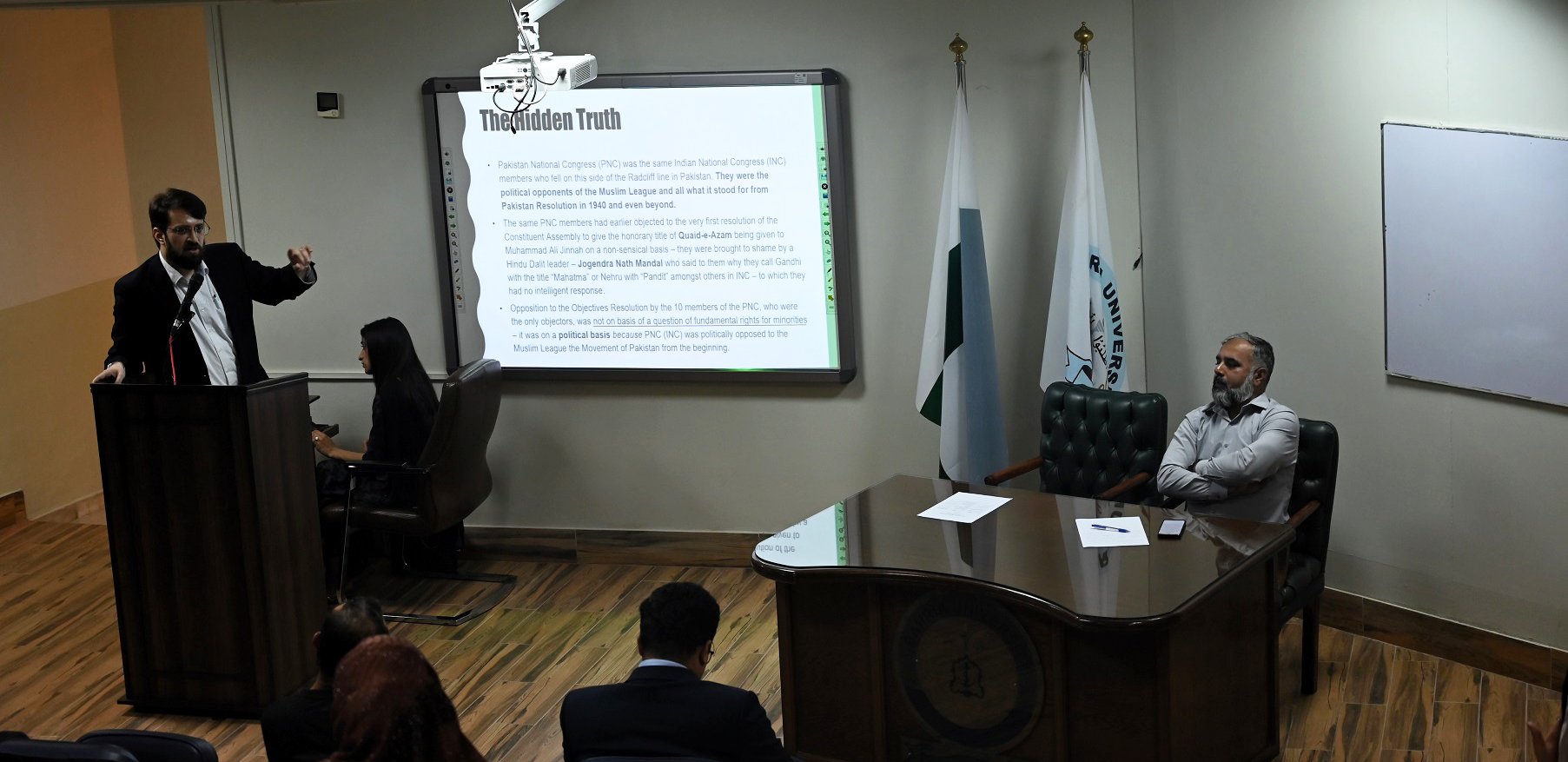
Researcher, scholar, and public speaker Syed Muaz Shah delivered the lecture. IPS’ Senior Fellow Syed Nadeem Farhat chaired the sitting while Dean HSS Dr Adam Saud delivered the vote of thanks.
Shah termed the Objectives Resolution as a document that continues to shape Pakistan’s societal and governmental ethos and underscores its enduring role as the cornerstone of Pakistani identity that embodies the spirit of Pakistan, connects and defines the state and society with the spirit of its founding fathers, and charts out the fundamental character as well as the ideals of Pakistan.
Emphasizing that the Objectives Resolution has “a pivotal contribution as a unifying force, fostering national cohesion and solidarity across diverse communities,” the speaker addressed prevalent misinterpretations surrounding the Resolution, attributing them to a lack of awareness regarding its content, spirit, and impact.
For instance, after the Resolution was adopted, there were claims of a lack of minority consideration. Debunking that in the words of Liaquat Ali Khan, Shah reiterated that the Objectives Resolution lays emphasis on the principles of democracy, freedom, equality, tolerance, and social justice and further defines them by saying that these principles should be observed in the constitution as they have been enunciated by Islam. Quoting Liaquat Ali Khan, he said Pakistan has “…not ignored the rights of the non-Muslims. Indeed, it would have been un-Islamic to do so.”
Shah further stated that the Objectives Resolution is the key and most defining document that is often considered the preamble of the Constitution of Pakistan and preserved as Article 2A in the 1973 Constitution. Its key provision, “Sovereignty over the entire world belongs to Allah Almighty alone and the authority which He has delegated to the state of Pakistan, through its people for being exercised within the limits prescribed by Him is a sacred trust,” wholly determines that adequate provisions are made for the minorities.
He said the Objectives Resolution not only manifested the spirit of equality but also followed the democratic principles of policy-making in which all stakeholders enjoyed free speech.
Referring to historical documents, Shah maintained that the Hindu members of the Constituent Assembly who resisted the Objectives Resolution were those who were elected in the 1946 elections from the Indian National Congress platform and were already against the creation and spirit of Pakistan. Underscoring that the reasons for opposing the Objectives Resolution were primarily political and not religious, he identified that “the non-Muslim members who supported Pakistan also supported the Objectives Resolution.”
The event attracted faculty members and students from various disciplines who engaged in a candid dialogue following Shah’s presentation. The significance and impact of the Objectives Resolution in national life were discussed from multiple dimensions, and it was underscored that its spirit required better understanding among the youth to reinforce the national identity and collective spirit.
